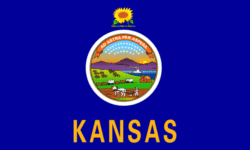 One of the most important factors in maintaining newspaper notice is the strength of the relationships between local publishers and their representatives in the state legislature. The relationships don’t need to be particularly close. They don’t even need to be politically harmonious as long as there is a baseline of trust. Public officials who can put a face to their local paper are much more likely to consider its policy concerns.
One of the most important factors in maintaining newspaper notice is the strength of the relationships between local publishers and their representatives in the state legislature. The relationships don’t need to be particularly close. They don’t even need to be politically harmonious as long as there is a baseline of trust. Public officials who can put a face to their local paper are much more likely to consider its policy concerns.
February brings more evidence of shift to newspaper websites
 Last month provided additional confirmation that state legislatures are increasingly looking to newspaper websites rather than government sites to supplement and perhaps eventually serve as an alternative to printed newspapers as the primary medium for public notice. Bills illustrating that trend moved closer to becoming law in both Indiana and Iowa.
Last month provided additional confirmation that state legislatures are increasingly looking to newspaper websites rather than government sites to supplement and perhaps eventually serve as an alternative to printed newspapers as the primary medium for public notice. Bills illustrating that trend moved closer to becoming law in both Indiana and Iowa.
Indiana
The tenor of public notice legislation has shifted in Indiana. At the start of 2023 it was one of the two or three states that seemed most likely to abandon newspapers in favor of government websites. Yesterday the legislature approved a bill that could instead serve as a gateway to an eventual migration to newspaper websites.
Stop disparaging public notice advertising!
 Pay close attention to reporting on public notice issues and you may begin to observe that some papers have adopted certain rhetorical habits that tend to undermine the goal of preserving newspaper notice. They’re mostly innocent mistakes made by people who are unaware that what they’re doing may be counterproductive. But it’s fair to say that if those habits could be eliminated it might enhance the policy environment for maintaining newspaper notice.
Pay close attention to reporting on public notice issues and you may begin to observe that some papers have adopted certain rhetorical habits that tend to undermine the goal of preserving newspaper notice. They’re mostly innocent mistakes made by people who are unaware that what they’re doing may be counterproductive. But it’s fair to say that if those habits could be eliminated it might enhance the policy environment for maintaining newspaper notice.
News websites supplanting government sites as alternative source of notice?
 Public notice legislation introduced so far in 2024 suggests state legislatures are growing increasingly comfortable having news websites serve as an alternative source of official notice. And that comfort seems to have cooled their ardor for moving notices from newspapers to government websites.
Public notice legislation introduced so far in 2024 suggests state legislatures are growing increasingly comfortable having news websites serve as an alternative source of official notice. And that comfort seems to have cooled their ardor for moving notices from newspapers to government websites.
As of the end of last week, new legislation authorizing local news websites or newspaper websites to provide statutory notice in lieu of print had been introduced in at least six states, while bills sanctioning the move from print newspapers to government websites had been introduced in only two states — and one of them is already dead.
N.Y. paper sues county over pulled notices
 A newspaper based in Delaware County, N.Y. sued county officials in December, claiming they unlawfully canceled its public notice contract in retaliation for unfavorable news coverage. The Reporter, a weekly newspaper based in the county seat of Delhi, also alleges the county violated the First and Fourteenth Amendments by ordering its employees to refer all questions from the paper to the county attorney’s office.
A newspaper based in Delaware County, N.Y. sued county officials in December, claiming they unlawfully canceled its public notice contract in retaliation for unfavorable news coverage. The Reporter, a weekly newspaper based in the county seat of Delhi, also alleges the county violated the First and Fourteenth Amendments by ordering its employees to refer all questions from the paper to the county attorney’s office.
The lawsuit was filed in federal court by Decker Advertising, the agency that owns The Reporter.
Public notice year in review
 2023 was a lot like 2022: A pretty good year marred primarily by the vote of a GOP-dominated state legislature to allow some local governments to publish notice on their own websites in lieu of local newspapers. Last year it was Florida, this year Ohio.
2023 was a lot like 2022: A pretty good year marred primarily by the vote of a GOP-dominated state legislature to allow some local governments to publish notice on their own websites in lieu of local newspapers. Last year it was Florida, this year Ohio.
Twenty-one states saw bills in 2023 that would have significantly curtailed newspaper notice, a number that is at the high end of the normal range for these kinds of bills. The only one to pass was Ohio HB-33.
Report shows limits of government publishing capacity
![]() Almost 40 percent of the counties, cities, villages, and towns in Wisconsin don’t post their local ordinances on a website or, at best, have posted an “obviously incomplete listing of ordinances,” according to a report issued late this summer by the state’s Department of Administration (DOA).
Almost 40 percent of the counties, cities, villages, and towns in Wisconsin don’t post their local ordinances on a website or, at best, have posted an “obviously incomplete listing of ordinances,” according to a report issued late this summer by the state’s Department of Administration (DOA).
The agency also noted that many local governments that do post their ordinances on the web make it difficult or impossible to find them or to determine how comprehensive they are.
Move to government websites picks up steam in Ohio
 Townships in Ohio are seeking the same power already granted to municipalities in the state: The power to publish notice via the Internet instead of a local newspaper.
Townships in Ohio are seeking the same power already granted to municipalities in the state: The power to publish notice via the Internet instead of a local newspaper.
Introduced late last week, a new bill, HB-315, would expand townships’ public notice options beyond print, allowing them to post notice on their own websites and social media accounts, or on the Ohio News Media Association’s statewide public notice site. It adopts the same language as HB-33, legislation enacted this summer authorizing cities and villages — “municipalities” under Ohio law — to publish notice online. HB-315 duplicates HB-33’s statewide website option even though ONMA announced after the latter bill passed that without major upgrades the website isn’t capable of accepting ads directly from customers.
Some cities opt out of newspaper notice in Kansas
 Kansas Attorney General Kris Kobach recently issued a legal opinion declaring that some cities may publish notices on their own websites despite a state law requiring them to be published in local newspapers.
Kansas Attorney General Kris Kobach recently issued a legal opinion declaring that some cities may publish notices on their own websites despite a state law requiring them to be published in local newspapers.
“Home-rule provisions of the Kansas Constitution … allows cities to exempt themselves from nonuniform acts of the Legislature,” Kobach wrote. “We conclude that a second-class city may exempt itself by charter ordinance. And, once having done so may then choose to publish official city business on its own webpage.”
Municipalities with populations between 2,000 and 15,000 people are considered “cities of the second class” in Kansas.
Connecticut Supreme Court to hear public notice case
 In 2019, the tiny Connecticut borough of Fenwick amended its zoning regulations to limit Airbnb-type temporary rentals of local homes. Two property owners in Fenwick opposed the new regulation so they sued to stop it, arguing the local zoning commission violated the state’s statutory notice requirements. Even though Fenwick published timely, substantively sufficient notice in a local newspaper it had used for decades for that purpose, the trial court found the notice didn’t comply with the state’s public notice law and granted the property owners’ motion for summary judgment.
In 2019, the tiny Connecticut borough of Fenwick amended its zoning regulations to limit Airbnb-type temporary rentals of local homes. Two property owners in Fenwick opposed the new regulation so they sued to stop it, arguing the local zoning commission violated the state’s statutory notice requirements. Even though Fenwick published timely, substantively sufficient notice in a local newspaper it had used for decades for that purpose, the trial court found the notice didn’t comply with the state’s public notice law and granted the property owners’ motion for summary judgment.
Column to close statewide-website business
 About a dozen press associations received a bit of a surprise last week when one of the two major vendors of statewide public-notice websites announced it was “sunsetting” that part of its business. In the release announcing its decision, Column said it was making the change to focus on its public notice platform for publishers, which it says “has grown considerably … (o)ver the past year.”
About a dozen press associations received a bit of a surprise last week when one of the two major vendors of statewide public-notice websites announced it was “sunsetting” that part of its business. In the release announcing its decision, Column said it was making the change to focus on its public notice platform for publishers, which it says “has grown considerably … (o)ver the past year.”
Column is giving its press-association clients plenty of time to migrate to a new service; they have until May 31, 2024, to find a new vendor. The company recommended that its clients transition to the other major statewide public-notice website vendor — the Illinois Press Association — which Column called “the best alternative provider of public notice website hosting.”
